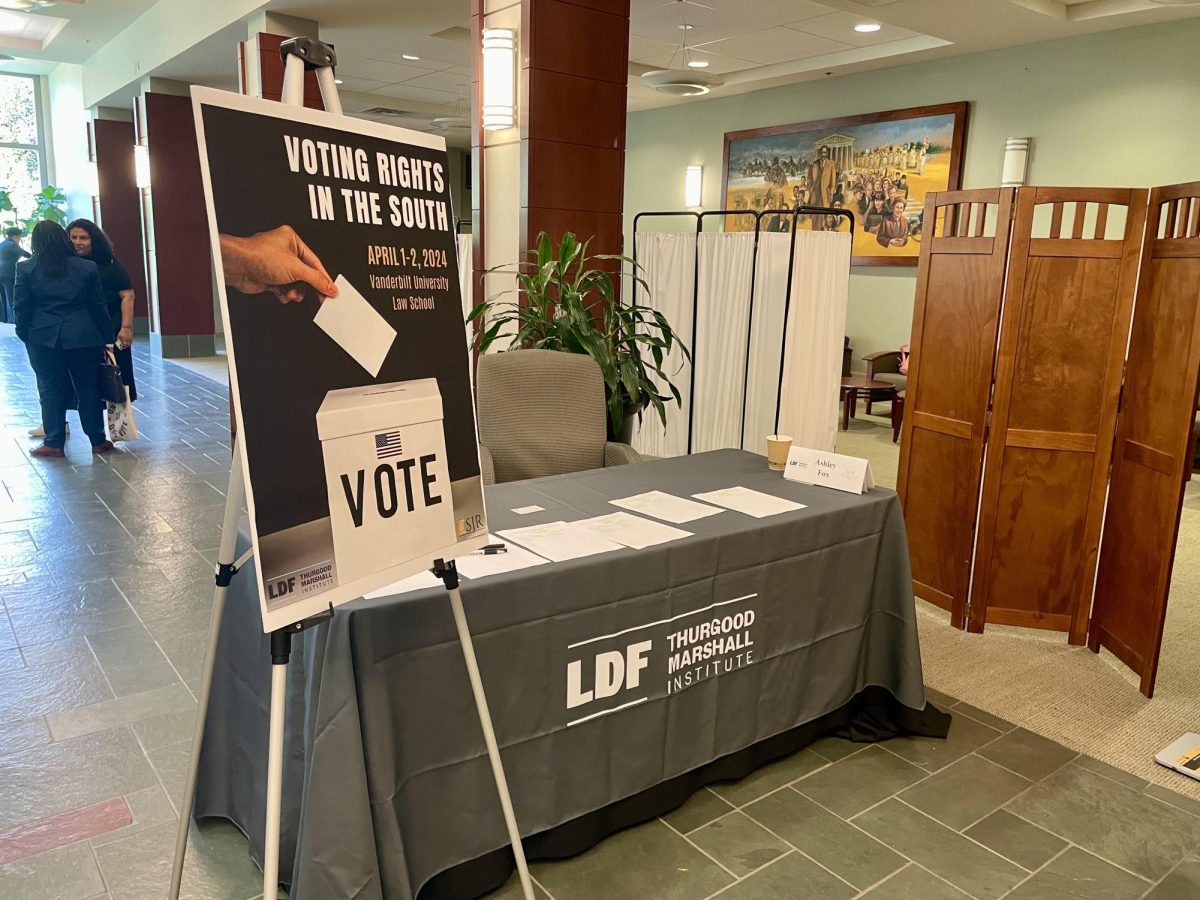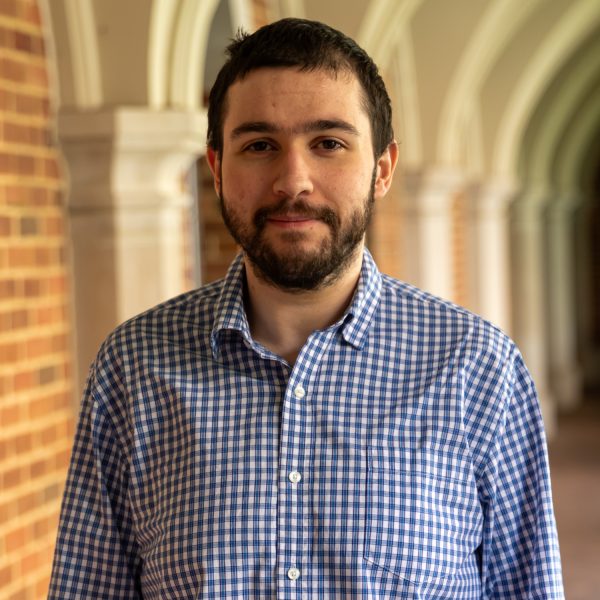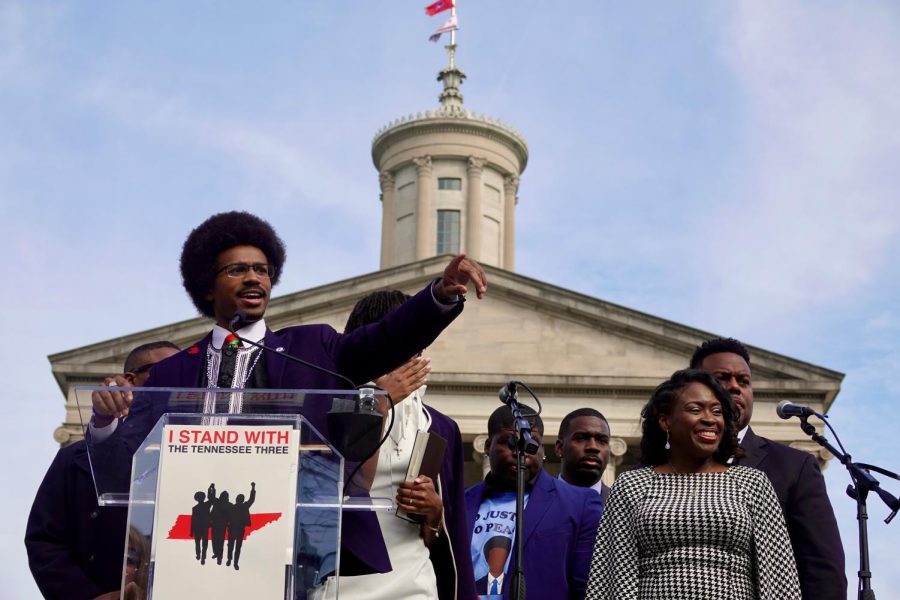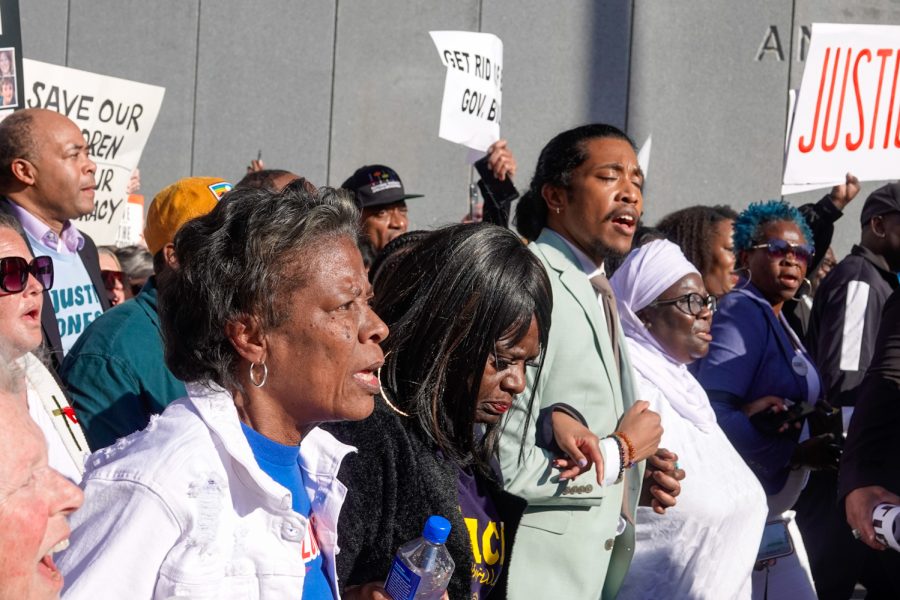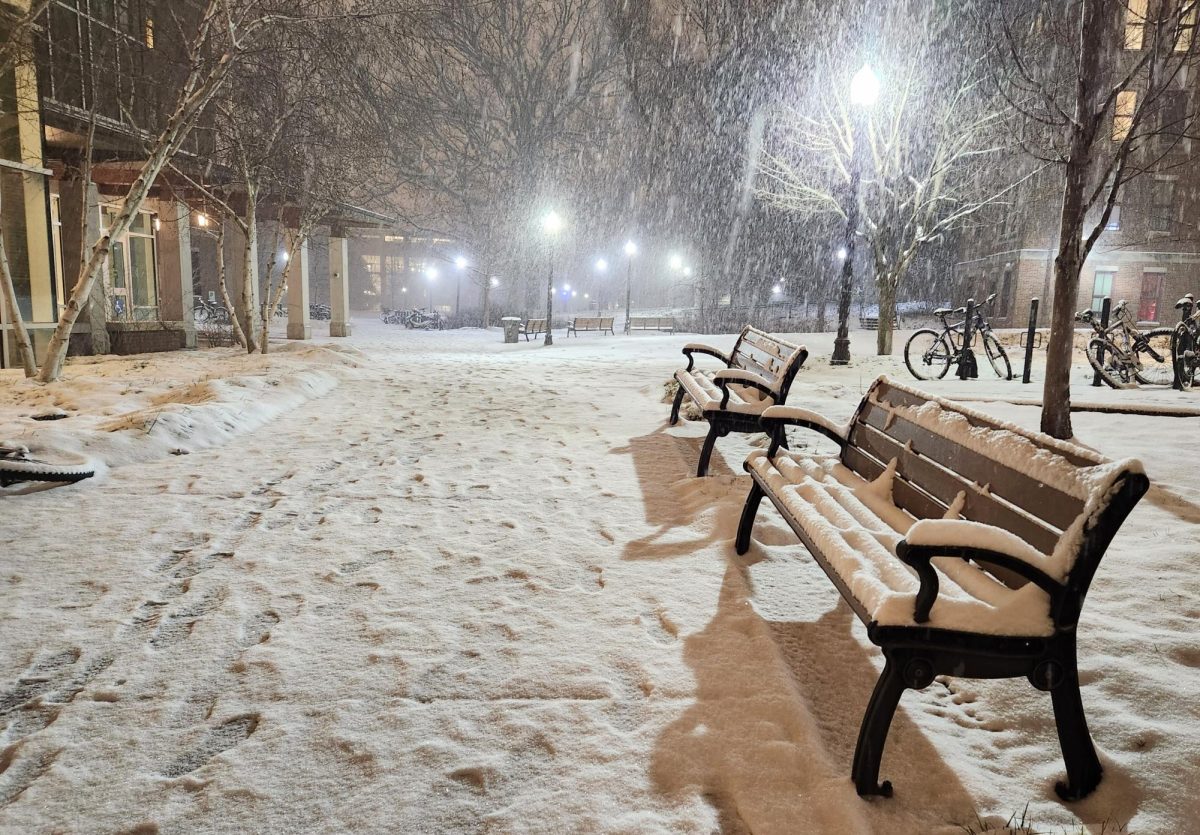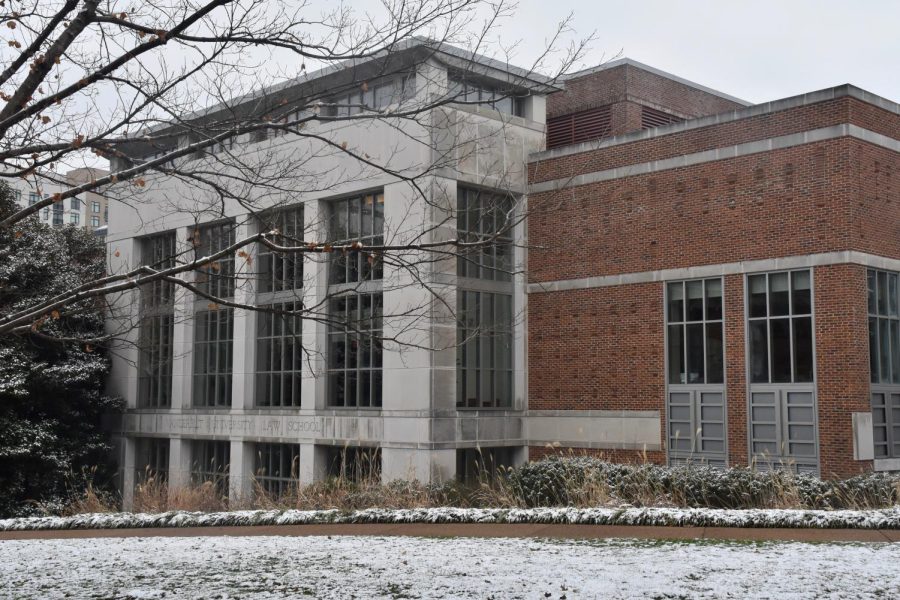The Vanderbilt Social Justice Reporter and the NAACP Legal Defense and Educational Fund’s Thurgood Marshall Institute jointly hosted a two-part event centering on “Voting Rights in the South” on April 1 and 2. Attended by over 200 people, the event involved a community conversation on democracy and equal voting rights, a series of panel discussions and a voter registration drive.
Officially launched as an operational academic journal in August 2023, VSJR is based on the 1956-1972 Race Relations Law Reporter journal, and publishes pieces on social justice-related topics revolving around racial, gender, LGBTQIA+, economic and environmental equality. The Thurgood Marshall Institute, established in 2015, employs research, advocacy and archival efforts to push for racial justice.
VSJR Editor-in-Chief Ashley Fox, a third-year law student, said the event focused on the issue of voting rights as it is the “issue of the moment” and aligned with VSJR’s emphasis on civil rights.
“[TMI] is a large organization and provided an invaluable amount of programming expertise, outreach support and staff resources to help VSJR’s small team secure a stellar lineup,” Fox said.
Community conversation
The community conversation event hosted on April 1 at the National Museum of African American Music featured a discussion of the importance of voting rights advocacy and various means of advancing change.
The event included a conversation between Legal Defense Fund President and Director-Counsel Janai Nelson, President & Senior Lecturer for Repairers of the Breach the Rev. William J. Barber II and Tennessee State Rep. Justin Jones (D–Nashville). The conversation’s moderator was Khalil Ekulona, host of “This is Nashville” on Nashville Public Radio.
Ekulona began by asking each participant about their motivations for becoming involved in working for change. Nelson said she felt that taking action against racial injustice was her life calling, citing law as a “powerful tool” that allowed her to achieve this. Barber spoke about his experience growing up as a child in segregated public schools in the South after his parents moved to participate in the Civil Rights Movement.
“As I grew, I learned from my father and learned from teachings of scripture that there’s no way to say Jesus without saying justice,” Barber said.
Jones shared his experience organizing against a voter identification law while he was a student at Fisk University.
“The reason I do what I do is because I know the legacy in which we stand and I know that this is personal,” Jones said.
When asked what she would say to young aspiring movement attorneys, Nelson emphasized their significance in creating change through motivating others, noting it is important for legal advocates to listen to and work closely with the communities they seek to help.
“Lawyering is about helping to amplify the voices of disenfranchised communities. It’s being the strategic partner with your client — not seeing them as someone that you are imparting wisdom to but as someone who was part of the strategy of challenging laws,” Nelson said.
Barber spoke about the role of the church in advocating for change and against racial injustice.
“One of the things about the church’s role has to be to raise the moral critique. Our voice should not be about what’s left and what’s right, what’s conservative versus liberal, but what’s right versus wrong,” Barber said.
Barber also talked about the importance of voting rights in changing the political environment of the South and giving a voice to the marginalized.
“He [Martin Luther King Jr.] didn’t see voting rights as just a Black issue,” Barber said. “He saw voting rights as opening up the past ability of fusion coalition’s that would bring people together around economic issues and transform the South.”
Jones spoke extensively of his experiences serving in the Tennessee State House, pointing to the court’s role in combating the partisan imbalance in legislative power.
“We’re all equal in federal court, which is why right now, the speaker and I are in a lawsuit. I’m suing the Speaker of the House for suppressing the votes of the people in my district, for silencing the votes of the people in my district,” Jones said.
Roundtable panel series
The panels hosted throughout April 2 at Vanderbilt Law School’s Flynn Auditorium discussed topics ranging from election misinformation to voting rights advocacy.
The day opened with a welcome reception featuring Nelson, Thurgood Marshall Institute Director Karla McKanders, Vanderbilt Law School Dean Chris Guthrie and Fox. In an email to The Hustler, Fox emphasized the timeliness and relevance of the event.
“Tennessee ranked last in voter turnout in 2022. This event was an opportunity to elevate a timely issue of national and local importance that impacts every single American,” Fox said. “Equal access to the ballot is a matter that should concern everyone — especially during an election year.”
Anita Earls, associate justice of the North Carolina Supreme Court, delivered the event’s keynote address, in which she discussed how the “weaponization” of American courts has upended voting rights protections across the nation.
The last session focused on the power of local elections to enact change from the ground up. Mary Moran, executive director of Our Voice Nuestra Voz, spoke on the importance of long-term community building and establishing continuous funding cycles for nonprofit organizations.
“[We’ve] had a lot of organizations that have come and said they’re going to do this work. They’re funded for three or four or five years, and we’re talking about work that needs to happen over a lifetime,” Moran said. “We’re talking about the people who’ve come before us who have laid a lot of the groundwork down, but really, there needs to be a focus on who is coming after us.”
District 25 Council Member Jeff Preptit called attention to what he views as poor resource allocation for the administration of elections in Tennessee, noting a failure to properly fund ballot takers and utilize functioning voting machines.
“We’re seeing these consistent and intentional actions, both from state and civil society actors, that are directly disincentivizing people’s participation and directly threatening people when they participate in our elections,” Preptit said.
Andrea Benjamin, associate professor of political science at the University of Oklahoma, urged attendees to find common ground where external parties seek to divide minoritized groups.
“Together, we can try to solve these issues instead of being told, ‘Oh, that’s not your problem.’ One issue that I think people often overlook is Black immigration. They frame immigration as a Mexican problem, but that’s not true,” Benjamin said. “Housing, education, inflation, affordable wages — those are our issues together. So how do we get on the same page instead of pitting us against one another?”
During the Q&A portion of the event, the panel warned of perceived threats to local government in Nashville. Preptit noted that the Metro Council is engaged in lawsuits to prevent the state from halving its size and addressed the emergence of partisan threats to school boards in the form of groups like Moms for Liberty, which is currently being tracked by the Southern Poverty Law Center as a “hate group.”
Fox expressed gratitude for VSJR and TMI’s organizational efforts and hopes the programming encouraged attendees to join voting rights efforts.
“We could not have asked for a better program! Our hope is that attendees left inspired to work toward eliminating barriers to accessing the ballot and more informed about the current challenges that many Americans are facing when trying to vote, particularly in the South,” Fox said in an email to The Hustler.

